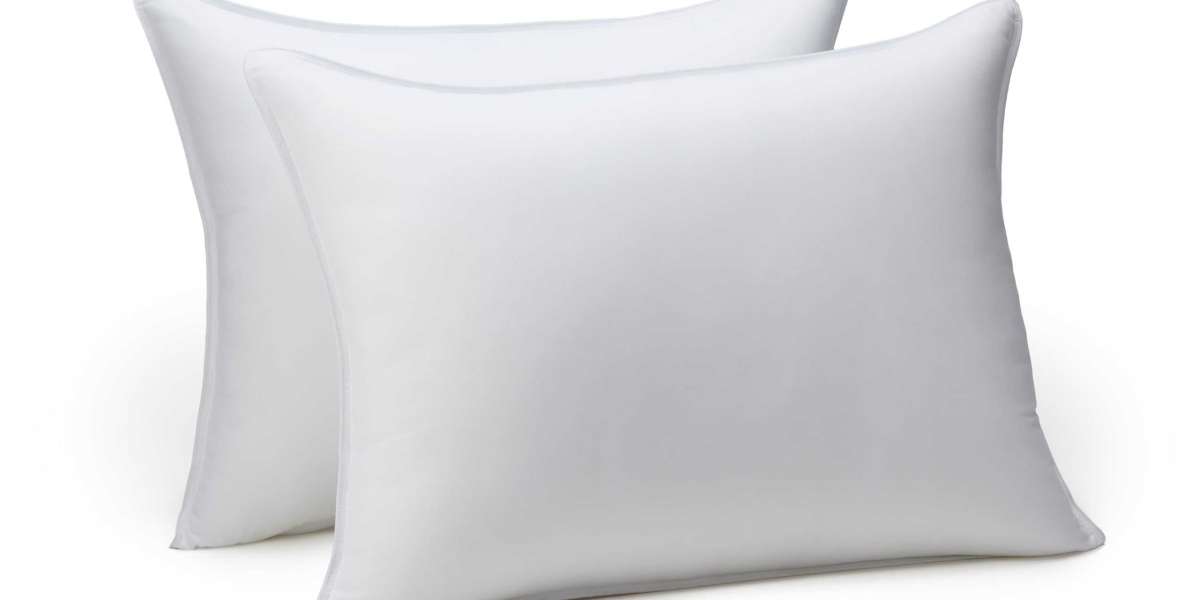A Complete Guide to Comfort, Support, and Better Sleep
A good pillow is one of the simplest ways to improve your sleep quality. Whether you sleep on your back, side, or stomach, the right pillow supports your neck, reduces stress on your spine, and helps you wake up refreshed. Many people don’t realize how important a pillow is until they experience neck pain, headaches, or restless nights. In this guide, we’ll explore why a pillow matters, what types are available, and how to choose the perfect one for your sleep needs.
Why a Good Pillow Matters for Sleep
Your pillow plays a major role in keeping your head, neck, and spine aligned. When alignment is correct, your muscles relax, and your body rests properly. A poor-quality pillow, on the other hand, can lead to stiffness, discomfort, and disturbed sleep.
Here’s why choosing the right pillow is essential:
- Reduces neck and shoulder pain
- Helps maintain spine alignment
- Prevents morning headaches
- Improves breathing and posture
- Supports deeper and longer sleep
Because sleep affects your mood, energy levels, and overall health, the right pillow becomes more important than many people think.
Common Types of Pillows
Different pillows offer different levels of comfort and support. Understanding each type helps you decide what suits your personal preference.
1. Hollow Fiber Pillows
These are soft, lightweight, and budget-friendly. Hollow fiber pillows are ideal for people who want a fluffy and comfortable feel. They provide moderate support and are great for everyday use.
2. Memory Foam Pillows
Memory foam pillows contour to the shape of your head and neck. They are excellent for people with chronic neck pain or stiffness. These pillows provide firm support and keep your spine aligned throughout the night.
3. Microfiber Pillows
Microfiber pillows are smooth, soft, and hypoallergenic. They offer a gentle and comfortable feel, making them ideal for sensitive sleepers who prefer medium support.
4. Gel Pillows
Gel-infused pillows help control temperature. They stay cool throughout the night, which makes them perfect for people who sleep warm or experience night sweats.
5. Latex Pillows
Latex pillows are firm, supportive, and long-lasting. They offer a natural bouncy feel and are great for people who need stability while sleeping.
6. Down Pillows
Down pillows are filled with soft feathers. They’re extremely soft and luxurious but provide less support than foam or latex options. Ideal for people who love a plush, cloud-like feel.
How to Choose the Right Pillow for Your Sleep Style
Your sleep style plays a big role in deciding which pillow is best for you. Here’s how to match your pillow with your sleeping position:
1. Side Sleepers
Side sleepers need a pillow that keeps their neck aligned with their spine.
Best options include:
- Memory foam pillows
- Latex pillows
- Thick hollow fiber pillows
A firm and high pillow supports your head properly and prevents neck strain.
2. Back Sleepers
Back sleepers should use a medium-firm pillow that keeps the head slightly elevated without pushing it forward.
Good choices include:
- Gel pillows
- Microfiber pillows
- Medium-density memory foam pillows
These pillows maintain natural posture and reduce pressure on the neck.
3. Stomach Sleepers
Stomach sleepers need soft, low-height pillows. A thick pillow can put strain on the neck.
Suitable options include:
- Soft hollow fiber pillows
- Thin microfiber pillows
Some stomach sleepers even avoid pillows altogether for better comfort.
Related more articles, pillow price in pakistan
Benefits of Using the Right Pillow
A well-chosen pillow improves sleep in many ways. Some key benefits include:
- Better posture throughout the night
- Reduced snoring and improved breathing
- Less pressure on muscles and joints
- Fewer sleepless nights
- More comfort and relaxation
A good pillow supports your natural sleeping position and helps your body rest properly.
How to Care for Your Pillow
Pillows need care to stay clean and supportive. Proper maintenance also helps avoid allergies and improves hygiene.
Here are simple pillow care tips:
- Wash pillow covers weekly
- Use a protective pillowcase
- Fluff your pillow regularly to keep its shape
- Wash hollow fiber or microfiber pillows every few months
- Air out foam pillows (memory foam shouldn’t be machine-washed)
- Keep pillows away from moisture and direct sunlight
A clean pillow not only improves sleep but also protects your skin and health.
Signs It’s Time to Replace Your Pillow
Even the best pillows don’t last forever. You should replace your pillow when:
- It feels flat and doesn’t bounce back
- It causes neck pain or headaches
- It has lumps or uneven filling
- It smells or has stains
- You wake up with sore muscles
Most pillows need replacement every 12 to 24 months, depending on the material and usage.
Conclusion
A pillow may look simple, but it has a big impact on your sleep quality and overall health. Choosing the right pillow based on your sleep style, comfort preference, and support needs can make your nights more peaceful and your mornings more energized. Whether you prefer soft, firm, warm, or cool pillows, the goal is to find one that keeps your head and neck aligned. With the right pillow and proper care, you can enjoy better sleep and wake up fresh every day.








